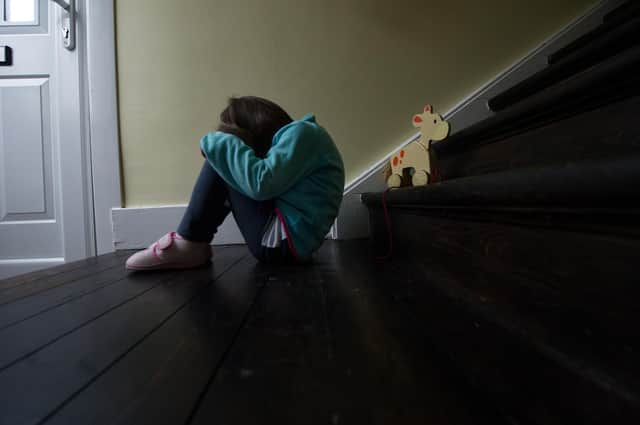CHILDLINE: Cases of cruelty and neglect on children and young people by adults have doubled in five years


Often, our volunteers are the first people these children speak to about their worst experiences, from abuse or bullying to cruelty and neglect.
New figures from the NSPCC show the number of reported cases of children being subjected to cruelty and neglect by adults has doubled since 2017-18, with 29,422 child cruelty offences recorded in England in 2022-23.
Advertisement
Hide AdAdvertisement
Hide AdThe numbers themselves are startling, but it’s important to remember that behind every one of them is a child who is going through a difficult experience.
One 12-year-old told our counsellors: “I can’t stop crying and I don’t know who to talk to about this. My mum isn’t looking after me properly. She never has any money, there is never food in the house, and she doesn’t take me to school.
“She takes drugs a lot and always asks me for money to get more. After she’s taken drugs, she’s in a really bad mood and is mean to me. Some of my relatives know what is happening but they don’t really do much. I just can’t take it anymore.”
What can be done to help these children and families across the country?
Advertisement
Hide AdAdvertisement
Hide AdChildren’s services work incredibly hard, but a properly funded child protection service would help identify risks to children earlier and take swift action to help improve their lives.
That’s why the NSPCC – along with Barnardo’s, Action for Children, The Children’s Society and The National Children’s Bureau – is asking the Government to commit to wholesale reform of children’s social care, backed by significant investment in early intervention and prevention, to improve the lives of babies, children and young people.
But anyone reading this can also play their part in looking out for the wellbeing of children and young people by contacting the NSPCC’s Helpline with their concerns.
Likewise, encouraging young people to speak to Childline or a safe adult about anything they are worried about could be enough to help them receive the support they need.